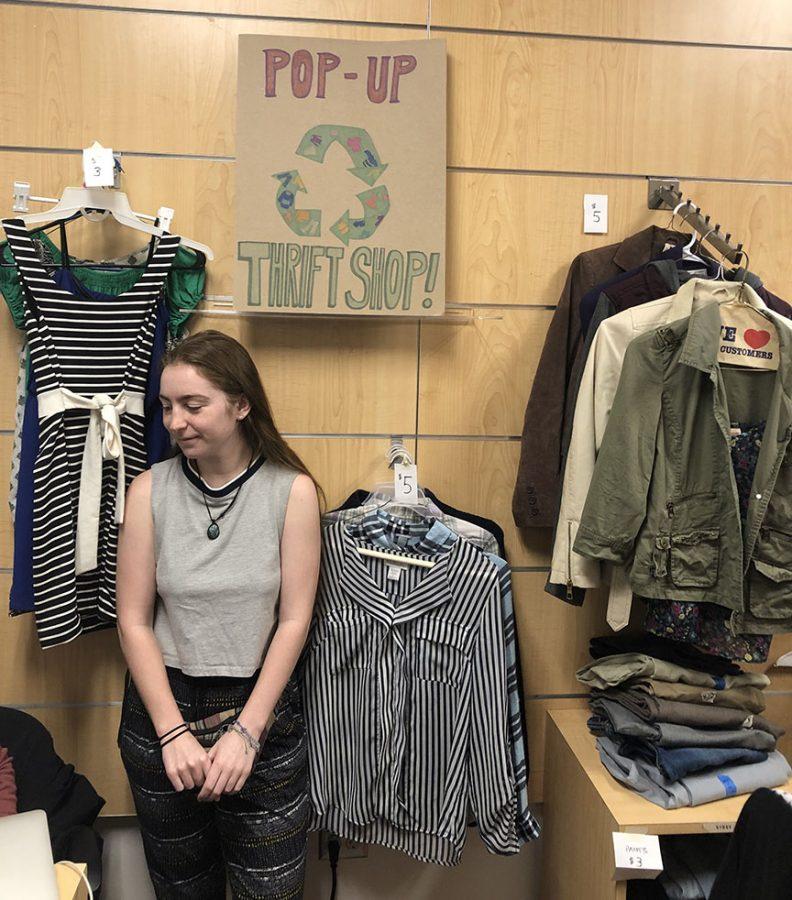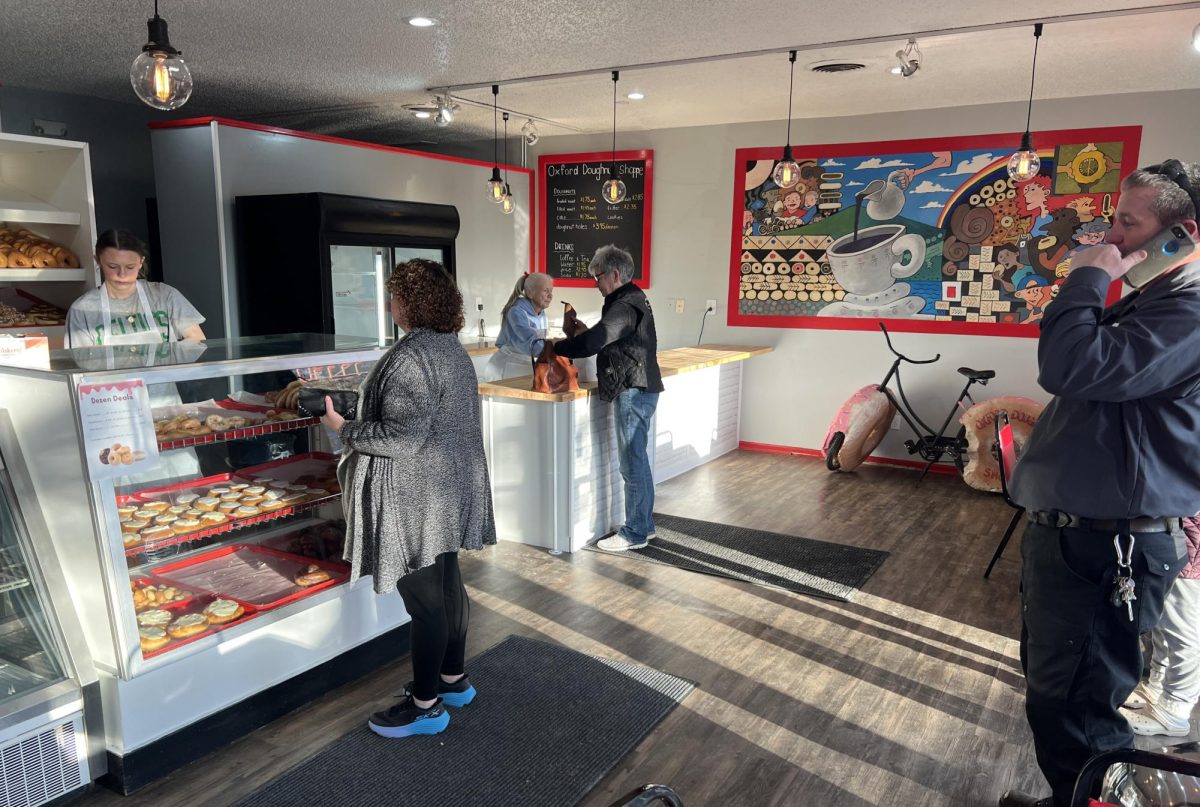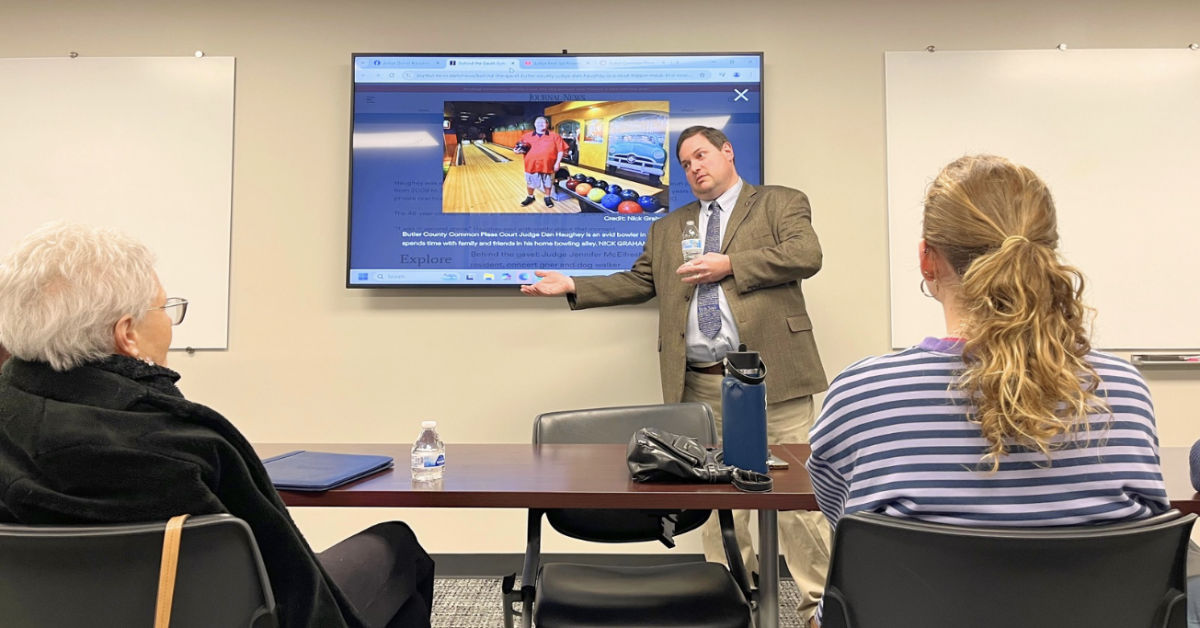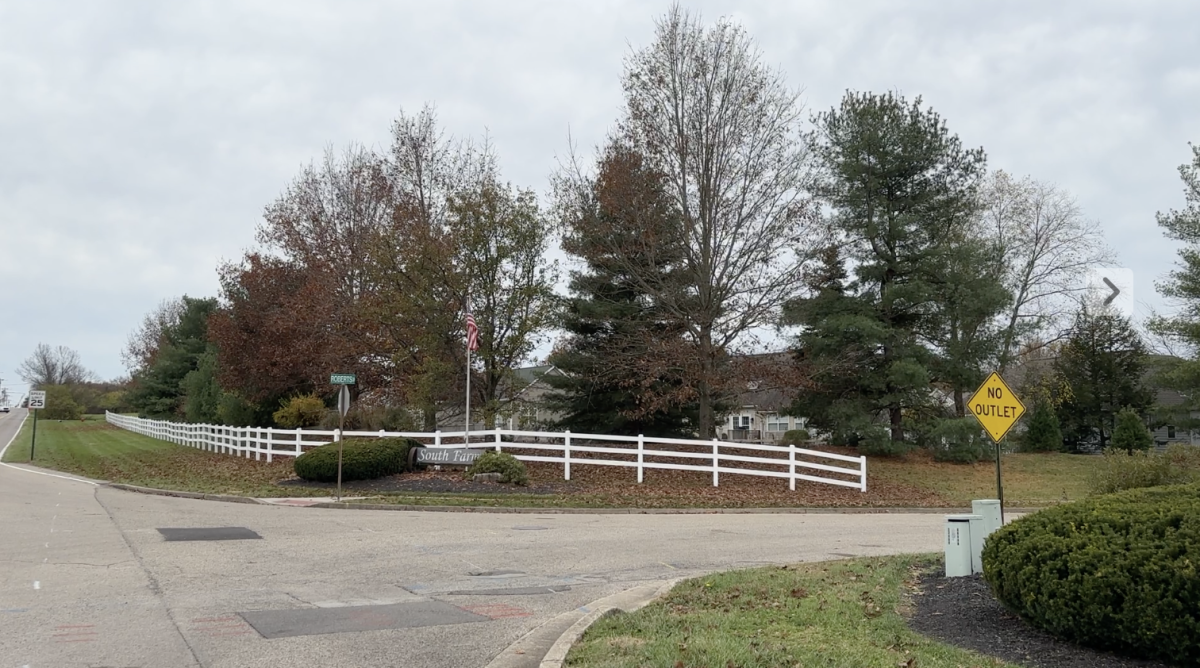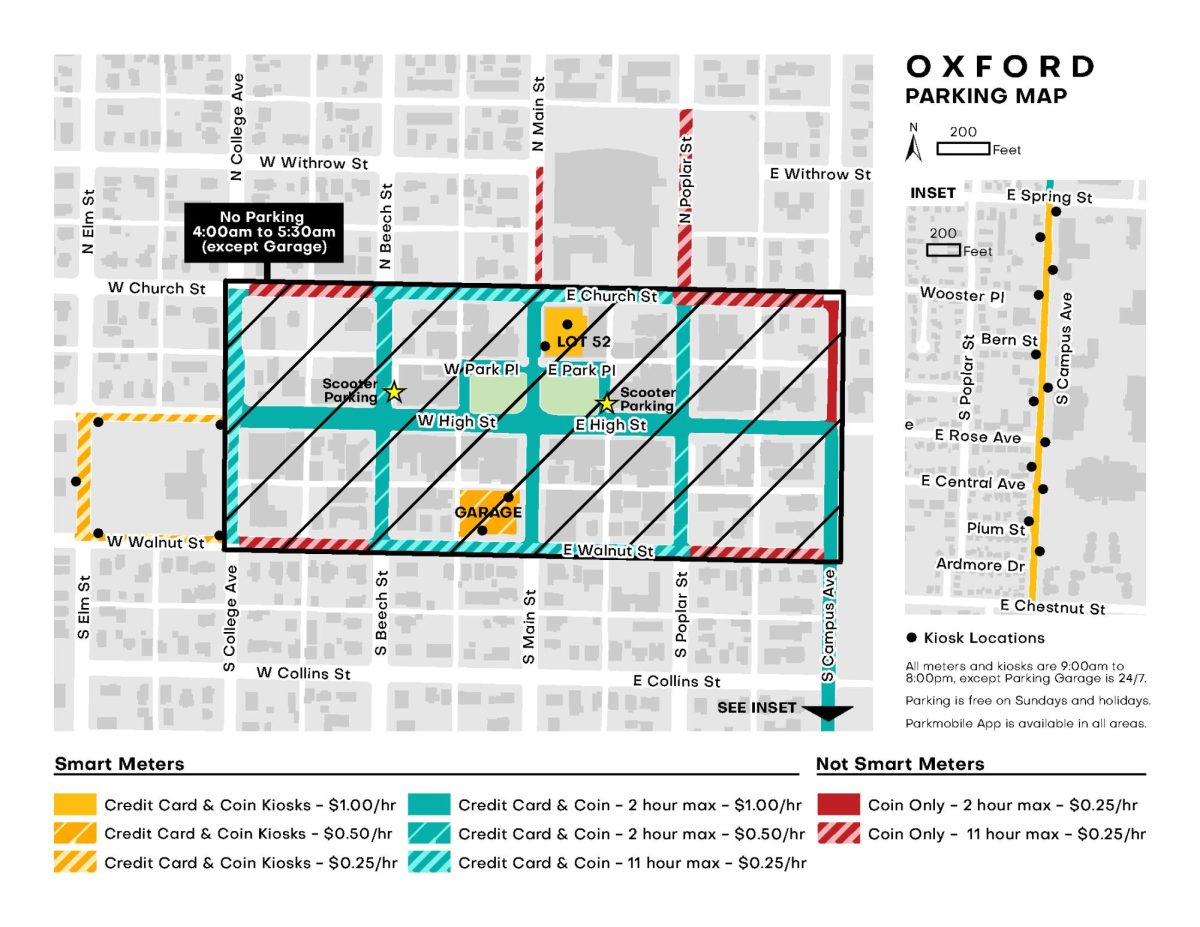Miami University seniors Madison Olds and Katja Diekgers stood behind a wooden table being used as a checkout counter in their pop-up thrift shop in the Armstrong Student Center. The duo appeared proud of the racks of used jackets, sweaters and other clothes for sale in the store.
For Olds and Diekgers, sustainability is more than an interest—it’s a lifestyle. After learning about “zero-waste” sustainability via Instagram, the girls took their environmental passion and formed Zero Waste Oxford, a club on campus. The organization seeks to raise awareness about environmental issues and eliminate harmful waste in our city, which can be seen through weekly litter pick-ups they organize on Saturday mornings. Starting at 201 S. Main St., participants patrol the streets nearby and fill up trash bags with litter.
This activity has grown among Miami students, but Diekgers and Olds also want Oxford community members to participate in the collection.
“The trash pickups are oddly satisfying. You feel good because you are making an impact by improving the look of the community. We want people to see us and not litter,” Olds said.
A Zero Waste Pop-Up Shop
One of Zero Waste’s largest projects to date is the development of a pop-up thrift store in Miami’s student center. Occurring in a vacant room dedicated to student-organization fundraising, the store offers a place for anyone to drop off unwanted clothing.
Olds and Diekgers then sell the clothes in their store, with the profits benefiting the club. The goal is to raise enough to bring a prominent zero-waste guest speaker to campus. The store’s first week generated $500 in sales.
“We can see results. We get to talk to Miami students and get them involved,” Diekgers said.
The shop features several movable clothing racks with an array of pieces, racks attached to the wall of clothes, and shelves with different sizes of pants. Space also contains a ‘changing room’ made possible by a makeshift wall. Items are sparsely priced, typically costing a few dollars. The end result is the reuse of clothing and keeping it out of landfills. For Diekgers and Olds, they hope more students and community members can adapt to this mindset.
“We live in a convenience culture and people forget to bring bags to the grocery and their own coffee cups,” Diekgers said. “It’s all about little habits.”
A New Composting Program in Oxford
Olds and Diekgers, alongside the Oxford Citizens for Peace and Justice and City Council, worked hard to help obtain composting in Oxford by circulating a petition and sending out emails to increase interest. The food-scrap composting pilot program in Oxford will start tomorrow, April 6.
For Oxford city councilor and environmental commission member Chantel Raghu, the composting development was the result of meticulous planning and a desire for cutting-edge sustainability in the town.
Raghu worked extensively with the Environmental Protection Agency (EPA) and after being unable to find a facility willing to expand to our area, the EPA recommended the services of GoZERO—an organization that transports food waste from communities to composters.
“The company we are working with is really ahead of our time,” Raghu said. “They take food waste to an EPA-certified composting facility.”
Raghu cited community outcry and increasing popularity as factors for the Council to pursue the program. After the council voted on implementation, Raghu took the reins and spearheaded the project. She hopes that the pilot program bears successful results.
“As a small town, we can be a beacon for other cities,” Raghu said. “We want to have curbside composting, just like traditional recycling eventually.”
While the pilot program excites Oxford’s year-round citizens, skeptical city leaders noted that some students and residents struggle to recycle. Carla Blackmar, a member of the city Planning Commission and a Mile Square resident, has noticed that some students recycle the wrong things, like plastic bags. When Rumpke doesn’t pick up their recycling, Blackmar says some students think they are being overlooked and then stop recycling altogether.
Blackmar does contend that citizens are more prepared than ever to create environmental change locally.
“Since some struggle with recycling, we were unsure if people would participate with composting. We were concerned the compost would be contaminated,” Blackmar said.
“The most exciting thing is that we have a coalition of environmental groups on and off campus that are ready and want to push these issues into the center of our lives,” Blackmar said. “We need people to participate and express excitement.”
How Composting Works
Composting differs from landfill trash in the greenhouse gases they emit. According to Raghu, trash collected traditionally by Rumpke will go the landfill and over time, will produce methane and nitrous oxide. These potent greenhouse gases are much worse than the carbon dioxide that is created from composting. Per the EPA, methane has a 25-times greater impact on the environment than carbon dioxide and 1 pound of nitrous oxide can warm the atmosphere almost 300 times more than 1 pound of carbon dioxide.
Once the food scraps are in the compost, they break down aerobically (with oxygen) and the carbon emitted goes back into the compost, which breaks down into rich soil. This soil reduces the need for chemical fertilizers and suppresses plant diseases and pests.
According to the city’s website, all residents need to do is put their food scraps in a container that they can lift into GoZERO Service’s waste-wheeler cart. The city does have 100 lidded buckets that are available on a first-come-first-served basis, but these buckets are not required. The collection will occur every Saturday from April 6, 2019, to January 4, 2020, during the hours of 9:30 a.m. and 12:30 p.m. at 945 S. Main St. (City of Oxford’s Streets and Maintenance Division garage facility.) For a complete list of what is acceptable to bring for composting, view this flyer.


